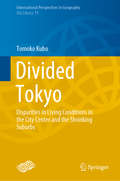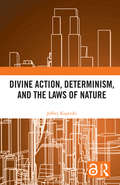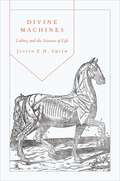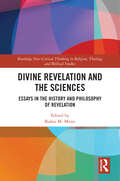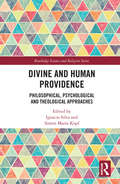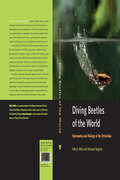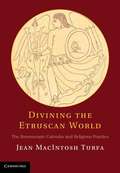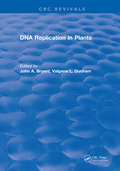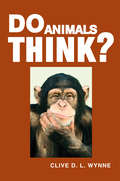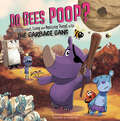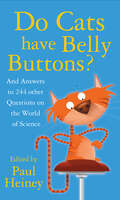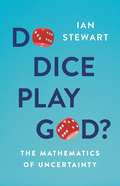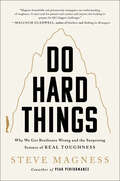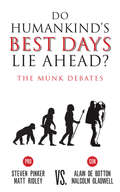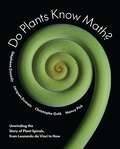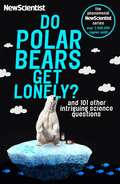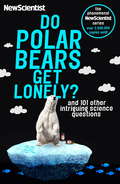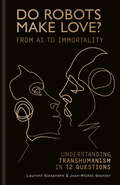- Table View
- List View
Divided Tokyo: Disparities in Living Conditions in the City Center and the Shrinking Suburbs (International Perspectives in Geography #11)
by Tomoko KuboThis book explores how and why Tokyo has been divided over time in terms of living conditions. First, recent urban discourses that explain the transformation of Tokyo’s urban structure are examined, along with social changes and the expansion of unequal residential conditions within the metropolitan area. Chapter 1 reviews: 1) discussions on globalization, neo-liberalization, and changes in housing policies; 2) debates on the divided city; 3) debates on the shrinking city and the urban lifecycle; 4) discussion of the urban residential environment from a social justice perspective; and 5) family–housing relationships in the post-growth society. Based on the literature review, the rest of the book is structured as follows. Chapter 2 explains the changes in urban and housing policies, demography, and socio-economic conditions. In Chapters 3 to 5, the background and characteristics of the growth of condominium living in the city center are examined. The next three chapters analyze the reality of shrinking suburbs, using case studies to demonstrate the increase in vacant housing and local responses toward shrinkage. In Chapter 9, possible solutions are proposed for dealing with problems related to urban shrinkage and the expanding gap in terms of the availability of investments to stimulate urban development, the residential environment, and the population age structure in Japanese cities by comparing the author’s findings and the literature review. This book provides deep insights for urban and housing scholars, urban planners, policy decision-makers, and local communities that struggle with aging populations and urban shrinkage.
Divine Action, Determinism, and the Laws of Nature
by Jeffrey KoperskiA longstanding question at the intersection of science, philosophy, and theology is how God might act, or not, when governing the universe. Many believe that determinism would prevent God from acting at all, since to do so would require violating the laws of nature. However, when a robust view of these laws is coupled with the kind of determinism now used in dynamics, a new model of divine action emerges. This book presents a new approach to divine action beyond the current focus on quantum mechanics and esoteric gaps in the causal order. It bases this approach on two general points. First, that there are laws of nature is not merely a metaphor. Second, laws and physical determinism are now understood in mathematically precise ways that have important implications for metaphysics. The explication of these two claims shows not only that nonviolationist divine action is possible, but there is considerably more freedom available for God to act than current models allow. By bringing a philosophical perspective to an issue often dominated by theologians and scientists, this text redresses an imbalance in the discussion around divine action. It will, therefore, be of keen interest to scholars of Philosophy and Religion, the Philosophy of Science, and Theology.
Divine Machines: Leibniz and the Sciences of Life
by Justin Smith-RuiuThough it did not yet exist as a discrete field of scientific inquiry, biology was at the heart of many of the most important debates in seventeenth-century philosophy. Nowhere is this more apparent than in the work of G. W. Leibniz. In Divine Machines, Justin Smith offers the first in-depth examination of Leibniz's deep and complex engagement with the empirical life sciences of his day, in areas as diverse as medicine, physiology, taxonomy, generation theory, and paleontology. He shows how these wide-ranging pursuits were not only central to Leibniz's philosophical interests, but often provided the insights that led to some of his best-known philosophical doctrines. Presenting the clearest picture yet of the scope of Leibniz's theoretical interest in the life sciences, Divine Machines takes seriously the philosopher's own repeated claims that the world must be understood in fundamentally biological terms. Here Smith reveals a thinker who was immersed in the sciences of life, and looked to the living world for answers to vexing metaphysical problems. He casts Leibniz's philosophy in an entirely new light, demonstrating how it radically departed from the prevailing models of mechanical philosophy and had an enduring influence on the history and development of the life sciences. Along the way, Smith provides a fascinating glimpse into early modern debates about the nature and origins of organic life, and into how philosophers such as Leibniz engaged with the scientific dilemmas of their era.
Divine Revelation and the Sciences: Essays in the History and Philosophy of Revelation (Routledge New Critical Thinking in Religion, Theology and Biblical Studies)
by Balázs M. MezeiThis book provides an in-depth analysis of the relationship between the sciences and the concept of divine revelation. It includes a historical overview of the notion of revelation, its role in scientific debates over the centuries, and current challenges in light of non-religious and especially non-revelational proposals. The volume emphasizes that discussions of divine revelation cannot be limited to theology alone but must also involve scientific and philosophical approaches. The contributions examine methodological, ethical, and theoretical questions related to the sciences. The main argument is that divine revelation not only played a historical role in shaping our understanding of knowledge but is also present in contemporary scientific endeavours and will continue to be important in the future. Divine revelation is considered to be a critical element of human existence that cannot be avoided in any scientific context. The book will be relevant to scholars of theology and philosophy, particularly those interested in religion and science.
Divine and Human Providence: Philosophical, Psychological and Theological Approaches (Routledge Science and Religion Series)
by Ignacio Silva Simon KopfThis volume offers an original perspective on divine providence by examining philosophical, psychological, and theological perspectives on human providence as exhibited in virtuous human behaviours. Divine providence is one of the most pressing issues in analytic theology and philosophy of religion today, especially in view of scientific evidence for a natural world full of indeterminacies and contingencies. Therefore, we need new ways to understand and explain the relations of divine providence and creaturely action. The volume is structured dynamically, going from chapters on human providence to those on divine providence, and back. Drawing on insights from virtue ethics, psychology and cognitive science, the philosophy of providence in the face of contingent events, and the theology of grace, each chapter contributes to an original overall perspective: that human providential action is a resource suited specifically to personal action and hence related to the purported providential action of a personal God. By putting forward a fresh take on divine providence, this book enters new territory on an age-old issue. It will therefore be of great interest to scholars of theology and philosophy.
Diving Beetles of the World: Systematics and Biology of the Dytiscidae
by Kelly B. Miller Johannes BergstenThe first comprehensive book in more than a century to reveal the diversity and natural history of diving beetles.Among the hundreds of thousands of species of beetles, there is one family, containing some 4,300 species, that stands out as one of the most diverse and important groups of aquatic predatory insects. This is the Dytiscidae, whose species are commonly known as diving beetles. No comprehensive treatment of this group has been compiled in over 130 years, a period during which a great many changes in classification and a near quadrupling of known species has occurred.In Diving Beetles of the World, Kelly B. Miller and Johannes Bergsten provide the only full treatments of all 188 Dytiscid genera ever assembled. Entomologists, systematists, limnologists, ecologists, and others with an interest in aquatic systems or insect diversity will find these extensively illustrated keys and taxon accounts immensely helpful. The keys make it possible to identify all taxa from subfamily to genera, and each key and taxon treatment is accompanied by both photographs and detailed pen-and-ink drawings of diagnostic features. Every genus account covers body length, diagnostic characters, classification, species diversity, a review of known natural history, and world distribution. Each account is also accompanied by a range map and at least one high-resolution habitus image of a specimen. Diving beetles are fast becoming important models for aquatic ecology, world biogeography, population ecology, and animal sexual evolution and, with this book, the diversity of the group is finally accessible.
Divining the Etruscan World
by Jean Macintosh TurfaThe Etruscan Brontoscopic Calendar is a rare document of omens foretold by thunder. It long lay hidden, embedded in a Greek translation within a Byzantine treatise from the age of Justinian. The first complete English translation of the Brontoscopic Calendar, this book provides an understanding of Etruscan Iron Age society as revealed through the ancient text, especially the Etruscans' concerns regarding the environment, food, health, and disease. Jean MacIntosh Turfa also analyzes the ancient Near Eastern sources of the Calendar and the subjects of its predictions, thereby creating a picture of the complexity of Etruscan society reaching back the before the advent of writing and the recording of the calendar.
Dna Replication In Plants
by John A. BryantThis texts discusses DNA replication in plants including chapters on; functional chromosomal structure, the biochemistry of DNA replication, Control of DNA replication, Replication of plant organelle DNA, replication of DNA viruses in plants, and DNA damage, repair, and mutagenesis.
Do Animals Think?
by Clive D. WynneDoes your dog know when you've had a bad day? Can your cat tell that the coffee pot you left on might start a fire? Could a chimpanzee be trained to program your computer? In this provocative book, noted animal expert Clive Wynne debunks some commonly held notions about our furry friends. It may be romantic to ascribe human qualities to critters, he argues, but it's not very realistic. While animals are by no means dumb, they don't think the same way we do. Contrary to what many popular television shows would have us believe, animals have neither the "theory-of-mind" capabilities that humans have (that is, they are not conscious of what others are thinking) nor the capacity for higher-level reasoning. So, in Wynne's view, when Fido greets your arrival by nudging your leg, he's more apt to be asking for dinner than commiserating with your job stress. That's not to say that animals don't possess remarkable abilities--and Do Animals Think? explores countless examples: there's the honeybee, which not only remembers where it found food but communicates this information to its hivemates through an elaborate dance. And how about the sonar-guided bat, which locates flying insects in the dark of night and devours lunch on the wing? Engagingly written, Do Animals Think? takes aim at the work of such renowned animal rights advocates as Peter Singer and Jane Goodall for falsely humanizing animals. Far from impoverishing our view of the animal kingdom, however, it underscores how the world is richer for having such a diversity of minds--be they of the animal or human variety.
Do Bees Poop?: Learning About Living And Nonliving Things With The Garbage Gang (The\garbage Gang's Super Science Questions Ser.)
by Thomas Kingsley TroupeThe Garbage Gang discovers a beehive in a stinky situation and they wonder, Do Bees Poop? With the help of a little bee friend, they get an answer to their burning question. By the end, they’ll be knee deep in knowledge about living and nonliving things.
Do Cats Have Belly Buttons?: And Answers to 244 Other Questions on the World of Science
by Paul HeineyWhy do jellies wobble? Why don't the oceans overflow? Why do racing cars have fat tyres? How do widgets in beer cans work? How many bones does a giraffe have in that long neck? I've been told that dogs only see in black and white. Is that true? How do we know that no two snow crystals are the same? Why is the earth round? And how do we know it is? why do camels have such bad breath? What is a bruise? Are chemicals in my brain responsible for my falling in love? Will they fade as I grow older? How long can love last? Do Cats Have Belly Buttons? is a follow-up to the successful Can Cows Walk Down Stairs?.Answering life's big questions, as well as the small, it unravels the science behind those things we take for granted, and explains just why the world and its contents are as they are. Informative, entertaining, humorous, it is the perfect present for quizaholics, science addicts, the insatiably questioning, and anyone curious about life on earth.
Do Chocolate Lovers Have Sweeter Babies?: The Surprising Science of Pregnancy
by Jena PincottBrain Candy for expectant parents! Pregnancy is an adventure. Lots of books tell you the basics—“the baby is the size of [insert fruit here].” But pregnant science writer Jena Pincott began to wonder just how a baby might tinker with her body—and vice versa—and chased down answers to the questions she wouldn’t ask her doctor, such as: • Does stress sharpen your baby’s mind—or dull it? • Can you predict your baby’s temperament? • Why are babies born in the darker months of the year more likely to grow up to be novelty-loving risk takers? • Are bossy, dominant women more likely to have boys? • How can the cells left behind by your baby affect you years later? This is a different kind of pregnancy book—thoughtful, fun, and filled with information you won’t find anywhere else.
Do Dice Play God?: The Mathematics of Uncertainty
by Ian StewartA celebrated mathematician explores how math helps us make sense of the unpredictableWe would like to believe we can know things for certain. We want to be able to figure out who will win an election, if the stock market will crash, or if a suspect definitely committed a crime. But the odds are not in our favor. Life is full of uncertainty --- indeed, scientific advances indicate that the universe might be fundamentally inexact --- and humans are terrible at guessing. When asked to predict the outcome of a chance event, we are almost always wrong. Thankfully, there is hope. As award-winning mathematician Ian Stewart reveals, over the course of history, mathematics has given us some of the tools we need to better manage the uncertainty that pervades our lives. From forecasting, to medical research, to figuring out how to win Let's Make a Deal, Do Dice Play God? is a surprising and satisfying tour of what we can know, and what we never will.
Do Gentlemen Really Prefer Blondes? Why He Fancies You and Why He Doesn't
by Jena PincottQ: Do Gentlemen Really Prefer Blondes? A: Marilyn Monroe, Scarlet Johansson and Gwyneth Paltrow would be happy to know that they do. During the Ice Age, when even cavemen were in short supply, the blonde woman really did get her man - simply because her light coloured hair made her stand out. Plus scientists have recently discovered that natural blondes have higher oestrogen levels. In short, golden (preferably long) hair shouts : 'I am young, sexy - and fertile' to every member of the male species within a few miles. Q: When's the best time to seduce my man? A: Your other half will definitely get more possessive and more attracted to you when you're ovulating and at your most fertile. You'll spend time on your make-up and choose next day's outfit before you go to bed. Your lips will be fuller, and your skin will be radiant because of the high levels of oestrogen being pumped through your blood. But don't get carried away by how sexy you feel. You are also more likely to be unfaithful during this period and your boyfriend is also likely to run away with another equally fertile member of the female species. Q: How do I get him to change his wild lifestyle? A: Get pregnant. Shocking but true. Fathers have lower testosterone levels than single men which means that they are more easy-going and less confrontational, they take fewer life threatening risks, and they are far less likely to have an affair with the leggier, skinnier blonde from the office.
Do Hard Things: Why We Get Resilience Wrong and the Surprising Science of Real Toughness
by Steve MagnessNational Bestseller"In Do Hard Things, Steve Magness beautifully and persuasively reimagines our understanding of toughness. This is a must-read for parents and coaches and anyone else looking to prepare for life's biggest challenges." -- Malcolm Gladwell, author of Outliers and Talking to Strangers and host of the Revisionist History podcastFrom beloved performance expert, executive coach, and coauthor of Peak Performance Steve Magness comes a radical rethinking of how we perceive toughness and what it means to achieve our high ambitions in the face of hard things.Toughness has long been held as the key to overcoming a challenge and achieving greatness, whether it is on the sports field, at a boardroom, or at the dining room table. Yet, the prevailing model has promoted a mentality based on fear, false bravado, and hiding any sign of weakness. In other words, the old model of toughness has failed us.Steve Magness, a performance scientist who coaches Olympic athletes, rebuilds our broken model of resilience with one grounded in the latest science and psychology. In Do Hard Things, Magness teaches us how we can work with our body – how experiencing discomfort, leaning in, paying attention, and creating space to take thoughtful action can be the true indications of cultivating inner strength. He offers four core pillars to cultivate such resilience: Pillar 1- Ditch the Façade, Embrace RealityPillar 2- Listen to Your BodyPillar 3- Respond, Instead of React Pillar 4- Transcend Discomfort Smart and wise all at once, Magness flips the script on what it means to be resilient. Drawing from mindfulness, military case studies, sports psychology, neuroscience, psychology, and philosophy, he provides a roadmap for navigating life’s challenges and achieving high performance that makes us happier, more successful, and, ultimately, better people.
Do Humankind’s Best Days Lie Ahead?: The Munk Debates (The Munk Debates #2015)
by Steven Pinker Malcolm Gladwell Matt Ridley Alain de BottonProgress. It is one of the animating concepts of the modern era. From the Enlightenment onwards, the West has had an enduring belief that through the evolution of institutions, innovations, and ideas, the human condition is improving. This process is supposedly accelerating as new technologies, individual freedoms, and the spread of global norms empower individuals and societies around the world. But is progress inevitable? Its critics argue that human civilization has become different, not better, over the last two and a half centuries. What is seen as a breakthrough or innovation in one period becomes a setback or limitation in another. In short, progress is an ideology not a fact; a way of thinking about the world as opposed to a description of reality.In the seventeenth semi-annual Munk Debates, which was held in Toronto on November 6, 2015, pioneering cognitive scientist Steven Pinker and bestselling author Matt Ridley squared off against noted philosopher Alain de Botton and bestselling author Malcolm Gladwell to debate whether humankind’s best days lie ahead.
Do I Know You?: A Faceblind Reporter's Journey into the Science of Sight, Memory, and Imagination
by Sadie DingfelderAn award-winning science writer discovers she&’s faceblind and investigates the neuroscience of sight, memory, and imagination—while solving some long-running mysteries about her own life. Science writer Sadie Dingfelder has always known that she&’s a little quirky. But while she&’s made some strange mistakes over the years, it&’s not until she accosts a stranger in a grocery store (whom she thinks is her husband) that she realizes something is amiss. With a mixture of curiosity and dread, Dingfelder starts contacting neuroscientists and lands herself in scores of studies. In the course of her nerdy midlife crisis, she discovers that she is emphatically not neurotypical. She has prosopagnosia (faceblindness), stereoblindness, aphantasia (an inability to create mental imagery), and a condition called severely deficient autobiographical memory. As Dingfelder begins to see herself more clearly, she discovers a vast well of hidden neurodiversity in the world at large. There are so many different flavors of human consciousness, and most of us just assume that ours is the norm. Can you visualize? Do you have an inner monologue? Are you always 100 percent sure whether you know someone or not? If you can perform any of these mental feats, you may be surprised to learn that many people—including Dingfelder—can&’t. A lively blend of personal narrative and popular science, Do I Know You? is the story of one unusual mind&’s attempt to understand itself—and a fascinating exploration of the remarkable breadth of human experience.
Do No Harm: Protecting Connected Medical Devices, Healthcare, and Data from Hackers and Adversarial Nation States
by Matthew WebsterDiscover the security risks that accompany the widespread adoption of new medical devices and how to mitigate them In Do No Harm: Protecting Connected Medical Devices, Healthcare, and Data from Hackers and Adversarial Nation States, cybersecurity expert Matthew Webster delivers an insightful synthesis of the health benefits of the Internet of Medical Things (IoMT), the evolution of security risks that have accompanied the growth of those devices, and practical steps we can take to protect ourselves, our data, and our hospitals from harm. You’ll learn how the high barriers to entry for innovation in the field of healthcare are impeding necessary change and how innovation accessibility must be balanced against regulatory compliance and privacy to ensure safety. In this important book, the author describes: The increasing expansion of medical devices and the dark side of the high demand for medical devices The medical device regulatory landscape and the dilemmas hospitals find themselves in with respect medical devices Practical steps that individuals and businesses can take to encourage the adoption of safe and helpful medical devices or mitigate the risk of having insecure medical devices How to help individuals determine the difference between protected health information and the information from health devices--and protecting your data How to protect your health information from cell phones and applications that may push the boundaries of personal privacy Why cybercriminals can act with relative impunity against hospitals and other organizations Perfect for healthcare professionals, system administrators, and medical device researchers and developers, Do No Harm is an indispensable resource for anyone interested in the intersection of patient privacy, cybersecurity, and the world of Internet of Medical Things.
Do Not Lick This Book
by Idan Ben-BarakIn this interactive children’s picture book, microbiologist Idan Ben-Barak and award-winning illustrator Julian Frost zoom in on the microscopic world found on everyday objects—and in our bodies—warning readers Do Not Lick This Book.Min is a microbe. She is small.Very small.In fact, so small that you’d need to look through a microscope to see her. Or you can simply open this book and take Min on an adventure to amazing places she’s never seen before—like the icy glaciers of your tooth or the twisted, tangled jungle of your shirt.
Do Plants Know Math?: Unwinding the Story of Plant Spirals, from Leonardo da Vinci to Now
by Stéphane Douady Jacques Dumais Christophe Golé Nancy PickA breathtakingly illustrated look at botanical spirals and the scientists who puzzled over themCharles Darwin was driven to distraction by plant spirals, growing so exasperated that he once begged a friend to explain the mystery &“if you wish to save me from a miserable death.&” The legendary naturalist was hardly alone in feeling tormented by these patterns. Plant spirals captured the gaze of Leonardo da Vinci and became Alan Turing&’s final obsession. This book tells the stories of the physicists, mathematicians, and biologists who found themselves magnetically drawn to Fibonacci spirals in plants, seeking an answer to why these beautiful and seductive patterns occur in botanical forms as diverse as pine cones, cabbages, and sunflowers.Do Plants Know Math? takes you down through the centuries to explore how great minds have been captivated and mystified by Fibonacci patterns in nature. It presents a powerful new geometrical solution, little known outside of scientific circles, that sheds light on why regular and irregular spiral patterns occur. Along the way, the book discusses related plant geometries such as fractals and the fascinating way that leaves are folded inside of buds. Your neurons will crackle as you begin to see the connections. This book will inspire you to look at botanical patterns—and the natural world itself—with new eyes.Featuring hundreds of gorgeous color images, Do Plants Know Math? includes a dozen creative hands-on activities and even spiral-plant recipes, encouraging readers to explore and celebrate these beguiling patterns for themselves.
Do Polar Bears Get Lonely: And 101 other intriguing science questions
by New ScientistDo Polar Bears Get Lonely? is the third compilation of readers' answers to the questions in the 'Last Word' column of New Scientist, the world's best-selling science weekly. Following the phenomenal success of Does Anything Eat Wasps? (2005) and the even more spectacularly successful Why Don't Penguins' Feet Freeze? (2006), Do Polar Bears Get Lonely? includes a bumper crop of wise and wonderful questions and answers such as:Why does garlic make your breath smell? How toothpaste makers get the stripes in toothpaste? Why do we get 'pins and needles'? Why are some people left-handed and other people right-handed? Can insects get fat? Do elephants sneeze? And do fish get thirsty? What causes cells to stick together in the human body rather than simply fall apart? And why are pears pear-shaped (and not apple-shaped)?This eagerly awaited selection of the best once again presents popular science at its most entertaining and enlightening.
Do Polar Bears Get Lonely?: And 101 Other Intriguing Science Questions
by New ScientistDo Polar Bears Get Lonely? is the third compilation of readers' answers to the questions in the 'Last Word' column of New Scientist, the world's best-selling science weekly. Following the phenomenal success of Does Anything Eat Wasps? (2005) and the even more spectacularly successful Why Don't Penguins' Feet Freeze? (2006), this latest collection includes a bumper crop of wise and wonderful answers never before seen in book form.As usual, the simplest questions often have the most complex answers - while some that seem the knottiest have very simple explanations. New Scientist's 'Last Word' is regularly voted the magazine's most popular section as it celebrates all questions - the trivial, idiosyncratic, baffling and strange. This all-new and eagerly awaited selection of the best again presents popular science at its most entertaining and enlightening.
Do Polar Bears Get Lonely?: And 101 Other Intriguing Science Questions
by New ScientistDo Polar Bears Get Lonely? is the third compilation of readers' answers to the questions in the 'Last Word' column of New Scientist, the world's best-selling science weekly. Following the phenomenal success of Does Anything Eat Wasps? (2005) and the even more spectacularly successful Why Don't Penguins' Feet Freeze? (2006), this latest collection includes a bumper crop of wise and wonderful answers never before seen in book form.As usual, the simplest questions often have the most complex answers - while some that seem the knottiest have very simple explanations. New Scientist's 'Last Word' is regularly voted the magazine's most popular section as it celebrates all questions - the trivial, idiosyncratic, baffling and strange. This all-new and eagerly awaited selection of the best again presents popular science at its most entertaining and enlightening.
Do Robots Make Love?: From AI to Immortality – Understanding Transhumanism in 12 Questions
by Jean-Michel Besnier Laurent AlexandreShould we enhance the human condition with technology?Does anyone really want to live for a thousand years?Could AI end up destroying mankind?Discover the incredible potential of mankind's near future as Doctor and entrepreneur Laurent Alexandre and tech-philosopher Jean Michel Besnier go head to head on the big questions in an entertaining and thought-provoking debate on the fundamental principles of transhumanism.This movement seeks to improve the human condition through science - has fast become one of the most controversial the scientific community have ever faced. As great strides are made in using advanced technology to enhance human intellect and physiology, the ethical and moral questions surrounding its possibilities have never been more pressing. Should we change the way we reproduce? Could we enhance the human body with technology to the point where we are all technically cyborgs? Is it possible to make love to a robot?
